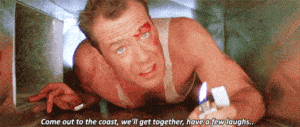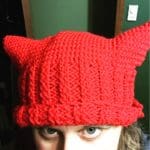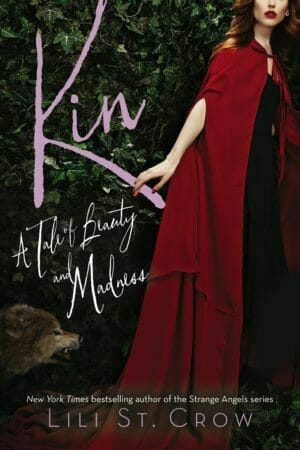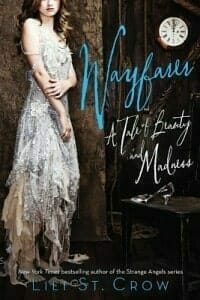
Tomorrow is Yule proper, the longest night and the celebration of light returning–or at least, the hope of such. Today is the absolute earliest day I will allow Christmas music in the house; however, the Princess and Little Prince rarely want it. It saturates all public spaces; this is, by contrast, our refuge.
The dogs sense my tension. Boxnoggin is determined to fix whatever has my tail tied in a knot; Miss B dimly suspects this has happened before and is more sanguine. Come the morning of the 25th, when the cooking begins, both of them will be excited and anticipatory. I wonder what Boxnoggin’s other Christmases have been like. No doubt he’ll calm down once he’s stuffed full of ham, belly-scrubbings, and treats.
Growing up, this time of year was inevitably one of mounting unease culminating in explosion. I used to try to decide which was worse: several small fires or the menacingly quiet build-up to a terrifying conflagration. On the one hand, the several small rages and punishments kept me in a state of low-level terror until after New Year’s, on the other, the tension leading up to the huge explosion made me sick with anticipation and I eventually feared for my life during the inevitable culmination. Year after year it was a roulette.
The first time I spent a quiet Christmas just by myself was revelatory. Nobody was screaming, breaking plates or my toys; nobody was hissing that I didn’t deserve presents or that I was a selfish child for having been born; the day passed quietly without me sneaking away to hide under my bed or vomit hopelessly behind a locked bathroom door that could still be screwdriver-opened at any moment. I wasn’t dragged out to “participate”, I wasn’t glared at while I opened presents and tried to guess which ones would be taken away after extended family went home and the war I’d never signed up for returned.
It was wonderful.
When my children arrived, their obvious and visible joy in the holiday frightened me. I worried that I wouldn’t be able to live up to their expectations, I worried that they secretly felt as awful as I had during the whole thing and were suffering trying to hide it, I worried that I wasn’t providing enough gifts, enough “traditions”, enough of anything, especially on Christmases where the budget didn’t permit much in the way of presents. It’s kind of funny now–both kids tell me they’ve always loved the holiday and I’ve always made it special for them. They don’t really understand my unease, since it’s always been a time of joy for them, a time to roll around in evidence that their Mum indeed loves them fiercely, completely, utterly.
I still can’t decide which was worse, the ongoing small fires or the huge explosion. The latter generally cleared the air for a while, but the absolute unremitting fear for my life during it seems a high price to pay. On the other hand, the grinding tension of several small pokes, slaps, pinches, nasty comments, glares, tiny humiliations occurring in clusters before a relatively smaller eruption turned me into a big-eyed, quivering wreck, afraid to even breathe deeply.
There’s really nothing to recommend either.
The kids, of course, are oblivious, looking forward to tree-decorating and a glut of good food. Presents? Well, they have everything they want, really, but I was able to afford some small things this year, and it pleases me to think of their joy when the Glorious Morn rolls around.
Among my friends this year, I feel like I’m the strong one. I just want to get everyone through to New Year’s with a minimum of damage. I feel like I’m clinging grimly to a lifeboat’s sides, making sure everyone has their vests secured and rationing our shipboard biscuits while we wait for rescue, comforting who i can and soothing as far as I am able.
Sometimes I long for the brief period in my life where I could let this entire time of year pass without decoration or remark, safely curled up inside my shell. I only participate for others, and some years I wish I didn’t have to.
All the same, participating for the joy of others is exponentially better than the conflagration or the wilderness of small random fires. It’s even quite beautiful in its own way, and I’m happy to bring joy to the people I care for. It gives me a deep satisfaction that helps battle the residual stress, the way Christmas decorations or the collection of holiday smells make my stomach clench with pained panic. I often feel that being incapable of enjoying the damn holiday season detracts from the joy of people I love, and worry that it indeed makes me the selfish brat I was accused since birth of being.
For me, even the best Christmas isn’t as good as a regular day spent working. It’s a gauntlet to run through, something to endure, and I’m always deeply glad when it’s over.
I’m buckled in and buckled down, prepared to see it through. Let’s hope we all reach the New Year with the minimum of damage, my friends.
Over and out.
 Just because you’ve always gone to that waterhole doesn’t mean you have to keep doing it.
Just because you’ve always gone to that waterhole doesn’t mean you have to keep doing it.
 The maple in the yard behind ours has lost about a third of its drapery, which means morning light has taken on that particular heading-into-winter cast. There really is nothing like autumn light. Richer than summer’s, warmer than winter’s, briefer and more beautiful than spring’s. Autumn is when I start waking up again, in exact reverse of most of the world. Winter, with its rain and grey, is my most productive time; autumn tells me I’m about to spike hard in terms of wordcount.
The maple in the yard behind ours has lost about a third of its drapery, which means morning light has taken on that particular heading-into-winter cast. There really is nothing like autumn light. Richer than summer’s, warmer than winter’s, briefer and more beautiful than spring’s. Autumn is when I start waking up again, in exact reverse of most of the world. Winter, with its rain and grey, is my most productive time; autumn tells me I’m about to spike hard in terms of wordcount. It’s cool and cloudy, which is not at all like August in this part of the world. The weather report says not to worry, we’ll be expiring of heat soon enough, but I can’t help but wonder at the intense shifts the weather takes.
It’s cool and cloudy, which is not at all like August in this part of the world. The weather report says not to worry, we’ll be expiring of heat soon enough, but I can’t help but wonder at the intense shifts the weather takes.
